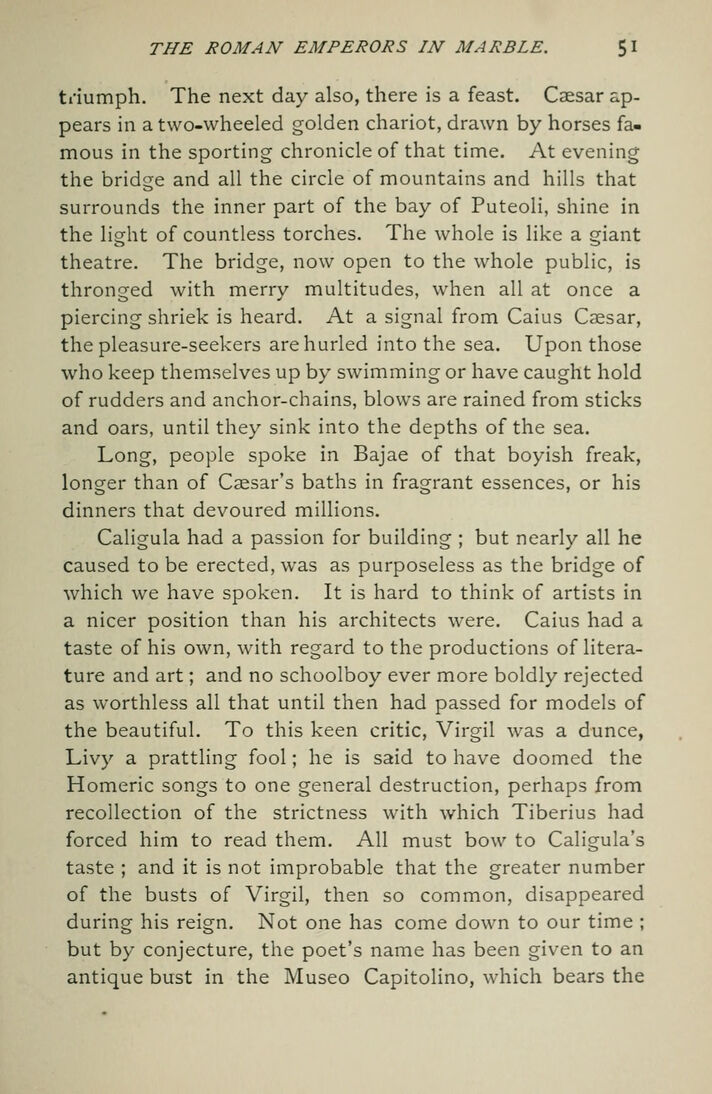
Full resolution (JPEG) - On this page / på denna sida - The Roman Emperors in Marble - 3. Caligula

<< prev. page << föreg. sida << >> nästa sida >> next page >>
Below is the raw OCR text
from the above scanned image.
Do you see an error? Proofread the page now!
Här nedan syns maskintolkade texten från faksimilbilden ovan.
Ser du något fel? Korrekturläs sidan nu!
This page has never been proofread. / Denna sida har aldrig korrekturlästs.
THE ROMAN EMPERORS IN MARBLE. $1
ti’iumph. The next day also, there is a feast. Caesar ap-
pears in a two-wheeled golden chariot, drawn by horses fa-
mous in the sporting chronicle of that time. At evening
the bridge and all the circle of mountains and hills that
surrounds the inner part of the bay of Puteoli, shine in
the light of countless torches. The whole is like a giant
theatre. The bridge, now open to the whole public, is
thronged with merry multitudes, when all at once a
piercing shriek is heard. At a signal from Caius Caesar,
the pleasure-seekers are hurled into the sea. Upon those
who keep themselves up by swimming or have caught hold
of rudders and anchor-chains, blows are rained from sticks
and oars, until they sink into the depths of the sea.
Long, people spoke in Bajae of that boyish freak,
longer than of Caesar’s baths in fragrant essences, or his
dinners that devoured millions.
Caligula had a passion for building ; but nearly all he
caused to be erected, was as purposeless as the bridge of
which we have spoken. It is hard to think of artists in
a nicer position than his architects were. Caius had a
taste of his own, with regard to the productions of litera-
ture and art ; and no schoolboy ever more boldly rejected
as worthless all that until then had passed for models of
the beautiful. To this keen critic, Virgil was a dunce,
Livy a prattling fool ; he is said to have doomed the
Homeric songs to one general destruction, perhaps from
recollection of the strictness with which Tiberius had
forced him to read them. All must bow to Caligula’s
taste ; and it is not improbable that the greater number
of the busts of Virgil, then so common, disappeared
during his reign. Not one has come down to our time ;
but by conjecture, the poet’s name has been given to an
antique bust in the Museo Capitolino, which bears the
<< prev. page << föreg. sida << >> nästa sida >> next page >>